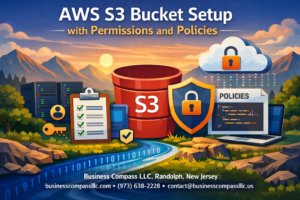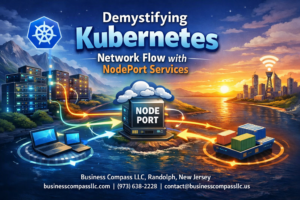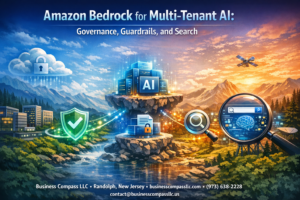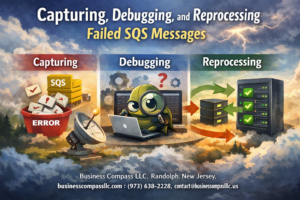Building a reliable system to extract review data at scale requires the right tools and cloud infrastructure. This guide walks you through creating a cloud-based review data extraction pipeline using Playwright, perfect for data engineers, developers, and businesses needing automated review collection from multiple sources.
Who This Guide Is For:
Data engineers building extraction systems, developers automating review collection, and technical teams scaling their web scraping operations.
We’ll cover the essentials of web scraping with playwright and show you how to build production-ready systems. You’ll learn to set up playwright automation for reliable data extraction, design scalable web scraping architecture that handles high-volume operations, and deploy your pipeline using cloud scraping infrastructure that grows with your needs.
The tutorial includes hands-on examples for automated review collection, best practices for web scraping deployment, and monitoring strategies to keep your cloud data extraction pipeline running smoothly.
Understanding the Foundation of Web Scraping for Review Data
Identify target review platforms and data structures
Successful review data scraping starts with mapping your target platforms and understanding their unique data architectures. Popular sites like Amazon, Yelp, TripAdvisor, and Google Reviews each structure their review content differently – some load data dynamically through JavaScript, while others use traditional HTML rendering. Document the specific data points you need: star ratings, review text, timestamps, reviewer profiles, and helpful votes. Create a comprehensive inventory of CSS selectors, API endpoints, and data formats for each platform to streamline your playwright automation implementation.
Analyze anti-bot detection mechanisms and rate limiting
Modern review platforms deploy sophisticated anti-bot systems that detect automated traffic patterns, unusual request frequencies, and browser fingerprinting. Common protection mechanisms include CAPTCHA challenges, IP-based rate limiting, session validation, and behavioral analysis that tracks mouse movements and scroll patterns. Study each platform’s specific defenses – some trigger blocks after 50 requests per minute, while others monitor session duration and user agent consistency. Understanding these systems helps design scalable web scraping architecture that mimics human behavior and avoids detection triggers.
Define data extraction requirements and quality standards
Establish clear data quality benchmarks and extraction parameters before building your pipeline. Define acceptable data completeness thresholds – perhaps 95% of reviews must include star ratings and text content, while reviewer information can be optional. Set validation rules for data freshness, duplicate detection, and content filtering to remove spam or promotional reviews. Document your required data schema, including field types, character limits, and standardization formats for dates and ratings. These standards guide your cloud data extraction pipeline design and ensure consistent, reliable output.
Choose appropriate scraping tools and frameworks
Web scraping with playwright offers distinct advantages over traditional tools like Selenium or BeautifulSoup for review extraction projects. Playwright handles JavaScript-heavy sites efficiently, supports multiple browsers, and provides built-in anti-detection features like stealth mode and human-like interactions. Compare this against alternatives: requests + BeautifulSoup for simple HTML sites, Selenium for cross-browser compatibility, or Scrapy for large-scale projects. Your choice depends on target complexity, scale requirements, and team expertise. Playwright excels for cloud-based scraping solutions due to its containerization support and headless operation capabilities.
Setting Up Playwright for Robust Data Extraction
Install and configure Playwright with cloud deployment in mind
Getting Playwright ready for cloud-based scraping starts with the right installation approach. Install Playwright using npm install playwright and immediately configure it for headless operation with playwright install --with-deps. For cloud deployment, set up environment variables for browser paths and configure resource limits. Create a centralized configuration file that handles different environments – development, staging, and production. This setup ensures your web scraping with playwright runs consistently across cloud platforms while maintaining optimal performance for automated review collection.
Configure browser contexts for stealth scraping
Browser contexts are your secret weapon for avoiding detection during review data scraping. Create isolated contexts with realistic user agents, viewport sizes, and locale settings that match real users. Configure timezone and geolocation settings to appear authentic. Implement random delays between actions and vary mouse movements to simulate human behavior. Set up custom headers including Accept-Language and Accept-Encoding to blend in with regular traffic. Each context should have its own cookies and session storage, preventing cross-contamination between scraping sessions and improving your cloud data extraction pipeline’s stealth capabilities.
Implement dynamic content handling and JavaScript rendering
Modern review platforms load content dynamically, making JavaScript rendering crucial for successful playwright automation tutorial execution. Configure Playwright to wait for network idle states using page.waitForLoadState('networkidle') and implement smart waiting strategies for specific elements. Handle lazy-loaded content by scrolling and triggering viewport changes. Set up proper error handling for failed JavaScript execution and implement retry mechanisms for unstable dynamic content. Use page.waitForSelector() with timeout configurations to ensure all review elements fully load before extraction begins.
Set up proxy rotation and IP management strategies
Effective proxy rotation prevents IP blocking and ensures scalable web scraping architecture success. Implement a proxy pool system that automatically rotates between different IP addresses for each request. Configure proxy authentication and test connections before use to avoid failures. Set up geographical proxy distribution to match target review platforms’ expected traffic patterns. Monitor proxy performance and automatically remove non-functional proxies from rotation. Create fallback mechanisms that switch to backup proxy providers when primary sources fail, ensuring your cloud-based scraping solutions maintain consistent uptime and data collection rates.
Designing a Scalable Cloud Architecture
Select optimal cloud platform and services for your pipeline
AWS stands out as the top choice for cloud-based scraping solutions, offering Lambda for serverless execution, ECS for containerized workloads, and S3 for data storage. Azure provides similar capabilities with Functions and Container Instances, while Google Cloud Platform excels with Cloud Run and BigQuery integration. Choose based on your team’s expertise and existing infrastructure. Consider data residency requirements and regional availability when selecting your primary cloud provider for the review data scraping pipeline.
Design fault-tolerant data processing workflows
Build resilience into your playwright automation tutorial by implementing retry mechanisms, dead letter queues, and circuit breakers. Use message queues like AWS SQS or Azure Service Bus to decouple scraping jobs from processing tasks. Design your cloud data extraction pipeline with graceful degradation – if one component fails, others continue operating. Implement health checks and automatic failover mechanisms. Store intermediate results to prevent data loss during unexpected failures, ensuring your scalable web scraping architecture remains operational.
Implement containerization for consistent deployment environments
Docker containers solve environment consistency issues across development, staging, and production. Package your Playwright scripts with all dependencies into lightweight images that run identically everywhere. Use multi-stage builds to minimize image size while including necessary browser binaries. Container orchestration platforms like Kubernetes or AWS ECS manage deployment, scaling, and updates automatically. This approach eliminates “it works on my machine” problems and streamlines the deployment process for your web scraping deployment pipeline.
Configure auto-scaling mechanisms for variable workloads
Review scraping workloads fluctuate dramatically based on target sites and data volume requirements. Implement horizontal pod autoscaling in Kubernetes or AWS Auto Scaling Groups to handle traffic spikes efficiently. Configure scaling policies based on CPU usage, memory consumption, and queue depth metrics. Set minimum and maximum instance limits to control costs while maintaining performance. Use serverless functions for sporadic tasks and container services for sustained workloads, optimizing your cloud scraping infrastructure costs.
Building Efficient Review Scraping Scripts
Create reusable scraping modules for different review sites
Building modular scraping components saves time and reduces maintenance overhead when targeting multiple review platforms. Create a base scraper class that handles common functionality like browser initialization, navigation, and cookie management. Design site-specific modules that inherit from this base, implementing unique selectors and pagination logic for platforms like Amazon, Yelp, or TripAdvisor. Store configuration data in JSON files to easily modify selectors without touching code. This approach lets you scale your playwright automation tutorial across different domains while maintaining clean, organized code.
Implement robust error handling and retry mechanisms
Network failures and anti-bot measures can derail your scraping pipeline without proper error handling. Implement exponential backoff strategies that wait progressively longer between retry attempts. Catch specific exceptions like timeout errors, connection failures, and blocked requests separately to apply appropriate responses. Use circuit breaker patterns to temporarily halt requests when a site becomes unresponsive. Log error details with context information to debug issues quickly. Your web scraping with playwright setup should gracefully handle captchas by rotating user agents and implementing delays between requests.
Optimize scraping performance with parallel processing
Speed up data collection by running multiple browser instances simultaneously while respecting rate limits. Use thread pools or async/await patterns to manage concurrent requests efficiently. Implement queue-based job distribution to balance workload across worker processes. Monitor memory usage carefully since each browser instance consumes significant resources. Set up intelligent load balancing that adjusts concurrency based on target site response times. This scalable web scraping architecture approach can reduce extraction time from hours to minutes while maintaining data quality and avoiding IP blocks.
Add data validation and cleaning capabilities
Raw scraped data often contains inconsistencies, duplicates, and formatting issues that need cleaning before storage. Build validation rules that check for required fields, proper data types, and realistic value ranges. Implement deduplication logic using hash comparisons or unique identifiers. Create standardization functions that normalize dates, ratings, and text formats across different sources. Set up data quality checks that flag suspicious patterns like identical reviews or unrealistic timestamps. Your review data scraping pipeline should automatically handle common issues like escaped HTML characters and extra whitespace.
Set up monitoring and logging for script performance
Track scraping performance metrics to identify bottlenecks and optimize resource usage. Log extraction rates, error frequencies, and response times for each target site. Set up alerts for unusual patterns like sudden drops in success rates or increased error counts. Create dashboards showing real-time scraping status and data quality metrics. Monitor resource consumption including CPU, memory, and bandwidth usage. Store performance data in time-series databases for trend analysis. This comprehensive monitoring approach helps maintain your cloud data extraction pipeline reliability and quickly identifies when sites change their structure or implement new anti-scraping measures.
Implementing Data Storage and Processing Systems
Design Efficient Database Schemas for Review Data
Creating a solid database schema for your review data scraping pipeline starts with understanding what data you’ll collect. Design normalized tables that separate core entities like businesses, reviews, reviewers, and timestamps. Use indexing strategically on frequently queried fields such as business IDs, review dates, and rating scores. Consider implementing partitioning for time-series data to improve query performance as your dataset grows. JSON columns work well for storing variable review metadata while maintaining flexibility for future schema changes.
Set Up Real-Time Data Streaming Pipelines
Apache Kafka paired with Apache Flink creates a robust streaming architecture for processing scraped review data in real-time. Configure Kafka topics to receive data from your Playwright scrapers, then use Flink for transformation tasks like sentiment analysis, language detection, and data enrichment. Set up consumer groups to handle different processing workflows simultaneously. Redis serves as an excellent caching layer for frequently accessed data, reducing database load during peak scraping periods. Monitor stream lag and processing rates to ensure your pipeline keeps up with incoming data volume.
Implement Data Deduplication and Quality Assurance Processes
Build comprehensive deduplication logic using multiple matching criteria including review text similarity, reviewer profiles, timestamps, and business identifiers. Implement fuzzy matching algorithms to catch near-duplicate content that exact matches might miss. Create data quality checks that validate review structure, detect spam patterns, and flag suspicious posting behaviors. Set up automated alerts for anomalies like sudden rating spikes or unusual review volumes. Use machine learning models to score review authenticity and filter out low-quality submissions before they enter your main dataset.
Deploying and Monitoring Your Production Pipeline
Configure Continuous Integration and Deployment Workflows
Setting up CI/CD pipelines ensures your web scraping with playwright infrastructure remains reliable and scalable. Use GitHub Actions or GitLab CI to automate testing and deployment of your scraping scripts. Create automated workflows that trigger on code commits, running playwright tests against staging environments before pushing to production. Configure Docker containerization for consistent deployments across cloud environments, ensuring your cloud data extraction pipeline maintains identical configurations. Implement blue-green deployments to minimize downtime during updates, allowing seamless transitions between script versions without interrupting your automated review collection processes.
Set Up Comprehensive Monitoring and Alerting Systems
Robust monitoring protects your cloud scraping infrastructure from silent failures and performance degradation. Deploy CloudWatch, Datadog, or Prometheus to track key metrics like scraping success rates, response times, and resource utilization. Set up alerts for failed scraping jobs, unusual traffic patterns, or blocked requests that could indicate anti-bot measures. Monitor your playwright automation tutorial scripts for memory leaks and timeouts that impact reliability. Create dashboards showing real-time pipeline health, including data extraction volumes and error rates. Configure escalation policies ensuring critical issues reach the right team members immediately, preventing data loss and maintaining your scalable web scraping architecture.
Implement Cost Optimization Strategies for Cloud Resources
Smart resource management keeps your cloud-based scraping solutions profitable while maintaining performance. Use spot instances or preemptible VMs for non-critical scraping jobs, reducing compute costs by up to 80%. Implement auto-scaling groups that adjust capacity based on scraping workload, preventing over-provisioning during low-traffic periods. Schedule intensive scraping operations during off-peak hours when cloud resources cost less. Use reserved instances for predictable workloads and configure lifecycle policies for data storage, moving older review data scraping results to cheaper storage tiers. Monitor costs daily through cloud billing dashboards and set up budget alerts to prevent unexpected charges from runaway processes.
Establish Data Backup and Disaster Recovery Procedures
Protecting your scraped data requires comprehensive backup strategies across multiple geographic regions. Implement automated daily backups of your databases and file storage systems, storing copies in different availability zones. Create point-in-time recovery capabilities for your playwright data extraction results, enabling restoration to specific timestamps when data corruption occurs. Document recovery procedures including RTO (Recovery Time Objective) and RPO (Recovery Point Objective) targets for different data types. Test disaster recovery processes monthly by simulating failures and measuring restoration times. Use infrastructure as code tools like Terraform to quickly rebuild your web scraping deployment environment from scratch, ensuring business continuity even during major outages or security incidents.
Creating a robust review data extraction pipeline brings together multiple moving parts that work seamlessly when properly configured. From setting up Playwright’s powerful browser automation capabilities to designing a cloud architecture that can handle growing data volumes, each component plays a crucial role in delivering reliable results. The combination of efficient scraping scripts, smart data processing systems, and proper monitoring creates a foundation that businesses can depend on for consistent review data collection.
The real value comes from having a system that runs smoothly without constant manual intervention. When you automate the entire process from data extraction to storage, you free up valuable time to focus on analyzing insights rather than wrestling with technical issues. Take the first step by experimenting with Playwright on a small scale, then gradually build out your cloud infrastructure as your data needs grow. Your future self will thank you for investing in a pipeline that scales with your business.




















